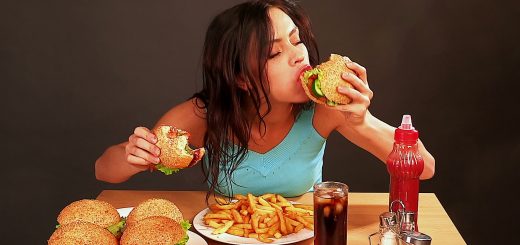Healthy Diets for Teenagers
Teenagers are young people aged between 13 and 19 years old. This is a crucial period where they need to adopt healthy diets to maintain good eating habits in adulthood. Surveys prove that most obese and overweight adults have had unhealthy eating habits since adolescence.
Fruits and Veggies

Consuming at least
five fruits and vegetables is an essential source of vitamins,
minerals, and fiber.
Encouraged by social media, peers, and
advertisements, many teenagers opt for junk foods to be part of the
trend. Junk foods are very poor in vitamins and minerals, and its
regular consumption results in a weak immune system along with
fatigue. When it comes to iron, teenage girls in particular, should
regularly consume green veggies like spinach, green pepper, and
legumes such as lentils and beans. Proper iron intakes compensate for
menstrual blood losses in girls.
Proteins
Teenagers experience rapid changes in their development. Protein is needed for the growth and repair of the body’s muscles, tissues, and production of enzymes and hormones. Sources of protein are fish, beans, lentils, chicken, meat, tofu, seeds, eggs, and milk products. It is essential to consider a teenager’s physical activity when including proteins in his or her diet. The more physically active the teenager is, the more protein foods he should consume.
Dairy
Teenagers require calcium to build strong bones. Daily consumption of milk and other dairy products is an excellent source of calcium. To minimize the risks of fragile bone conditions in adulthood, a teenage girl should consume at least 1300 milligrams of calcium daily. However, when drinking milk or yogurts, low-fat, or semi-skimmed options are recommended. Acne is recurrent during adolescence, and dairy’s high fat concentrations can accentuate skin breakouts.
Water
Drink plenty of water, at least two sips every 15 minutes. We always stumble over this hackneyed health advice, yet many of us tend to ignore it and would instead switch to other more palatable beverages. Fizzy drinks and sports drinks advertisements influence many teenagers. Fizzy drinks are high in sugar, while sports drinks even contain high doses of caffeine. Sugar and caffeine, especially when consumed in the evening, impedes one’s sleeping patterns. A lack of sleep doesn’t help the body in recovering from a tiring day at school.
Further, sugary drinks contribute to tooth decay, build up as body fat when one is sedentary, and is anathema to clear skin. Dehydration leads to the body’s inability to get rid of toxins as much as possible, hence promoting skin acne. A dehydrated body provides less medium for hormones and nutrients’ proper circulation.
Carbohydrates
Carbs are the primary source of energy to fuel the body. There are two types of carbohydrates: simple and complex carbs. Simple carbohydrates sources are dairy, fruits, and vegetables. Complex carbohydrates come from whole-grain foods, legumes, cereals, and starchy vegetables. Complex carbs provide energy at a slower rate as they take a longer time to be digested and will keep a teenager’s body running throughout the day. Sugar (derived from simple carbs), on the other hand, is a rapid source of energy and should not be a teenager’s major source of carbs.
Fats
Often pointed out as unhealthy, fats are, however, necessary in a teenager’s diet. Fats are divided into saturated and unsaturated. Sources of unsaturated fats are fish, olives, avocados, nuts, and seeds. They are essential for one’s proper cognitive functions and growth and decrease the risk of heart diseases in adulthood. Saturated fats, on the other hand, if not consumed in moderation increases the risks of obesity, heart disease, and cancer. Sources of saturated fats are cheese, animal food products (sausage, beef, bacon), margarine, and fried foods.
Exercise

A healthy diet works best with regular exercising. It is the best way to get rid of excess body fat, salts, maintaining the right mental balance, and exercising contributes to one’s proper sleep. A physically tired body falls asleep very quickly, ensuring adequate recovery of the body for the next day. One should encourage any teenager to practice sports daily.
Educating teens
Relying solely on schools to educate teens about a healthy lifestyle is often not enough at all. The best way to inculcate healthy eating habits to a teenager is to get him or her involved with healthy food. Showing a teenager how to plan a proper meal, from shopping for ingredients to cooking, will teach him good habits as well as learning how to manage a household in adulthood.
An occasional or daily treat
Engaging in a healthy diet doesn’t mean a teenager should abstain from a sweet treat or his favorite fast food for life. Once in a blue moon, one can indulge in his or her favorite meal. On the other hand, those with a sweet tooth can also bite in a small version of their favorite cookie or chocolate every day. One indulgence will not spoil a healthy eating habit.
To conclude, making healthy food choices isn’t challenging at all. As long as parents and guardians give the proper example, teenagers shall be properly channeled.



